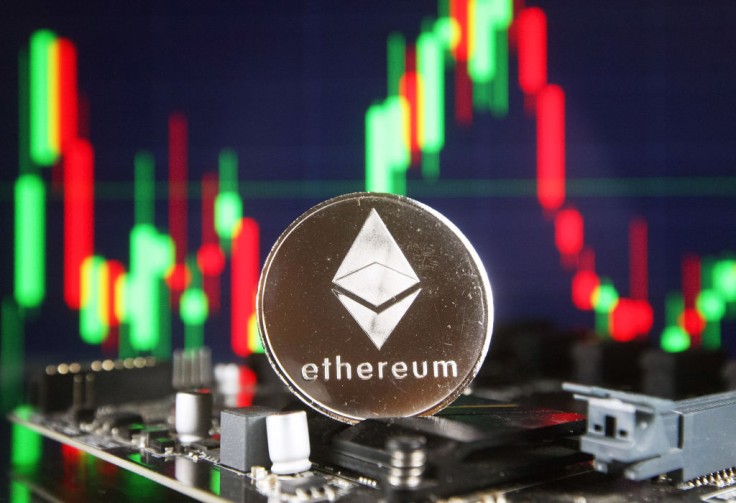
With a lot of people developing an interest in cryptocurrency trading and investing, it can be a little overwhelming to decide which coins to buy first. Normally, beginners look into the top largest or high-performing cryptocurrencies to gauge the rest of the market. Currently, Ethereum is the second-biggest cryptocurrency just behind Bitcoin, and it is usually one of the first coins new crypto investors purchase.
What Is Ethereum?
According to its website, Ethereum is open access to digital money and data-friendly services for everyone, regardless of their background or location. To own Ethereum, all you need is a wallet.
Ethereum is a community-built technology behind the ETH or Ether cryptocurrency. ETH can be used for thousands of everyday applications.
The cryptocurrency works on the basis of a blockchain network which is a decentralized, distributed public ledger where all transactions are verified and recorded, Forbes explains. The Ethereum blockchain supports numerous digital assets besides Etherum, such as Non-fungible tokens or NFTs and other altcoins like Ethereum Max.
What is ETH TLDR:
— Austin 🥚✶ (@MacNCheeasy) July 9, 2021
-Eth creates a decentralized supercomputer
-Daaps create an opportunity similar to the internet/smart phone movement
-To draw a comparison iPhone + App Store = Ethereum Network + Daaps
-Eth, the currency, acts as the oil or gas that lets the whole ecosystem run
As the second-largest cryptocurrency to Bitcoin, Ethereum holds a much different place in the cryptocurrency scene compared to Bitcoin.
Juan Villaverde, an econometrician, mathematician, and cryptocurrency analyst of Weiss Cryptocurrency Ratings, likens Bitcoin and Ethereum to gold and oil.
In a conversation with MarketWatch, he explains how gold is a safe store of value whereas oil is a commodity, with its applications to everyday life incredibly diverse. And the same can be said for Bitcoin and Ethereum.
Bitcoin simply needs robust security to guarantee user funds will not be hacked, but it is stable enough as a cryptocurrency to not do much else, viable as an investment.
Ethereum, Villaverde added, is "gas" for the digital economy. Not only does it need to be secure, but also "cheap, fast, and easy to use."
"Both are highly valuable and necessary to expand crypto's influence in the world," Villaverde added.
"We think that Ethereum will become a global digital economy, settling the movement of all types of value across the world, including a meaningful portion of traditional financial services." @LexSokolin https://t.co/OkF4wJ0cqE
— Consensys (@Consensys) April 28, 2021
Is Ethereum a Good Investment?
Ethereum is accessible and private. It has a large existing network that has been tried and tested through its years of operation. Its commitment to the global community has to lead to the creation of the largest ecosystem in blockchain and cryptocurrency, Forbes says.
This means it has established background and credibility in the cryptocurrency market, which one thing to greatly consider especially as volatility is in the nature of cryptocurrency. Although this will not grant you immunity from market lows, an established cryptocurrency can ride through the waves of the market lows with a little bit more stability.
Ethereum began in July 30 of 2015. It cost $200 in May of 2017 before gradually hitting $1,066.72 by January 2018, according to Statista. This four-figure price did not sustain, however, as it teetered between $100 to $200 from February of that year until June 2020.
By January 2021, it was able to reach $1,285.5 and consistently grew, hitting a high of $2,760.33 in April of 2021. Unfortunately, the May 2021 market dip affected Ethereum's prices as well, but it is currently looking optimistic.
An essential piece of #Ethereum’s Serenity upgrade, the Beacon Chain’s deposit contract, is live. This begins a transition to #Eth2.@EthDotOrg Guide: https://t.co/PkKwLnXKS4
— Ethereum Foundation (@ethereum) November 4, 2020
Launchpad: https://t.co/CFgFwAs46f
Deposit Contract Address: 0x00000000219ab540356cBB839Cbe05303d7705Fa
Ethereum is constantly innovating and has a wide range of functions that promises to leave behind third-party intermediaries with its decentralized network.
On the flip side, with its growing popularity, higher transaction costs are seen. Unlike Bitcoin that rewards transaction verifiers, Ethereum requires those participating in the transaction to cover the fee, Forbes explains. In February 2021, Ethereum's transaction fees hit as high as $23 per transaction.
New investors should also consider the potential for crypto inflation where an investment in Ethereum might not appreciate as much as Bitcoin would be given the nature of its annual limit. It also has a steep learning curve for developers who are used to a centralized processing system trying to learn the decentralized networks of Ethereum.
And given the nature of cryptocurrency itself, Ethereum has an unknown future. Ethereum 2.0 will roll out soon, promising new functions and greater efficiency. However, all these new elements have to work together seamlessly, or else something could go wrong.
When deciding to make any significant investment in Ether or other cryptocurrencies, it is best to speak with a financial advisor prior. That way, you can talk about potential risks and how to mitigate those risks. They could suggest investing in companies that are building applications using the Ethereum network, or perform "test buys" to see if you are actually comfortable with putting your money in a high-risk, and volatile market.









